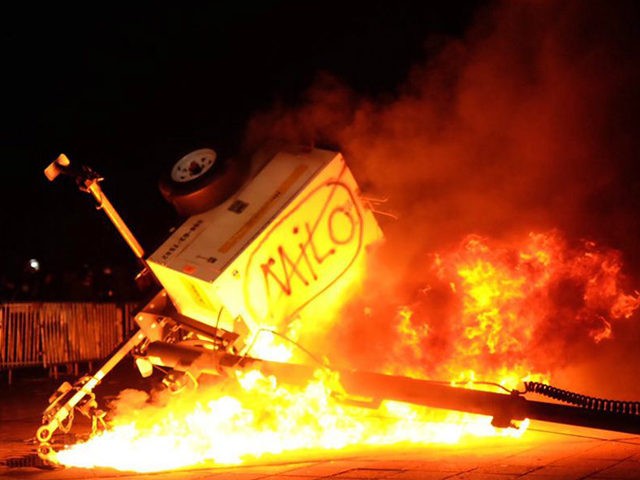The University of California, once the home of the Free Speech Movement, announced Thursday that it will launch the National Center for Free Speech and Civic Engagement to study First Amendment issues and educate students about them.
The center will be based in the Washington, DC.
“Our nation needs an outlet to grapple with the questions of free speech on college campuses — and what it means for free speech in America more broadly,” UC President Janet Napolitano said in a video for the new center’s website.
According to the Los Angeles Times, Napolitano said: “There have been more serious issues about the 1st Amendment on campuses today than perhaps at any time since the free speech movement. The students themselves are raising questions about free speech and does it apply to homophobic speech, does it apply to racist speech? We have to consider the student concerns but return to basic principles about what free speech means and how do we better educate students about the extent of the 1st Amendment.”
The University of California has been the site of several attempts to stifle free speech.
In January, protesters shut down right-wing author and political commentator Milo Yiannopoulos’s talk at UC Davis after they tore down barricades and engaged in violence.
In February, about 150 “masked agitators” at UC Berkeley stopped Milo from speaking at the university after accusing him of spreading hate speech and arguing that his right to speak should not be protected under the First Amendment. The left-wing culprits reportedly caused $100,000 worth of damage to the campus.
In April, conservative author and speaker David Horowitz was prevented from speaking at UC Berkeley when the school’s administrator’s “banned Horowitz from speaking on the campus proper and … assigned him a facility half a mile away” and “insisted Horowitz could speak only at 1 PM when afternoon classes are starting and most students would have difficulty attending.” The Berkeley College Republicans were reportedly forced to cancel the event.
Also in April, conservative author and speaker Ann Coulter was forced to cancel a speech at UC Berkeley after law enforcement sources warned that there was a “99% chance” of violence on the campus if she went ahead with her speech, and the student group sponsoring the event withdrew.
Last week, a handful of protesters reportedly disrupted a College Republicans meeting at UC Santa Cruz, and three students were arrested.
According to the Los Angeles Times, “Napolitano called the UC Santa Cruz protesters’ behavior unacceptable, saying it amounted to a ‘heckler’s veto’ aimed at shutting down protected speech.”
The Center’s advisory board’s notes that it will select eight fellows annually to research free speech issues and how students are changing their perception of free speech, including the role social media plays.
So far, the center’s advisory board includes former Sen. Barbara Boxer (D-CA); New York Times columnist Bret Stephens; Anne Kornblut, director of strategic communications at Facebook; Geoffrey R. Stone, a First Amendment scholar and professor at the University of Chicago Law School; and Washington Post columnist George Will. Both Stephens and Will have been subject to efforts at “dis-invitation” from liberal campuses.
Adelle Nazarian is a politics and national security reporter for Breitbart News. Follow her on Facebook and Twitter.

COMMENTS
Please let us know if you're having issues with commenting.